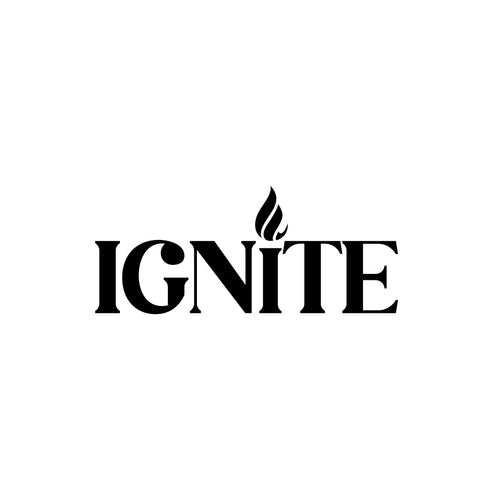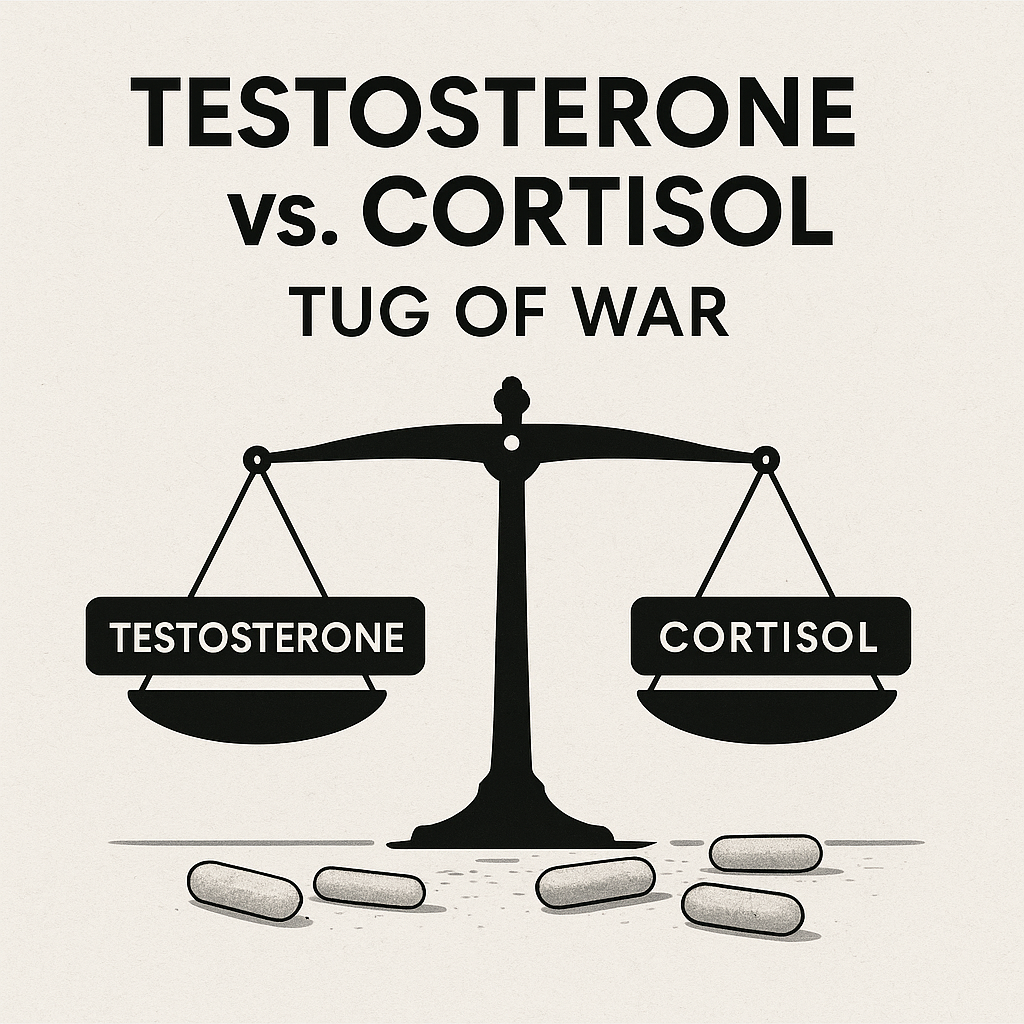Many men know about testosterone. Fewer know about cortisol. But understanding how these two hormones interact—and often oppose each other—is key to unlocking better energy, libido, and long-term health.
In this blog, we’ll break down what testosterone and cortisol do, why they’re often in conflict, and what you can do to support a better hormonal balance naturally.
🔍 What Is Testosterone?
Testosterone is the primary male sex hormone. It plays a vital role in:
-Libido and sexual function
-Muscle mass and strength
-Mental drive and motivation
-Mood stability
-Bone density and red blood cell production
While testosterone peaks in early adulthood, levels begin to decline gradually—by around 1% per year after the age of 30 [1]. This decline can be made worse by poor sleep, stress, excess body fat, and a sedentary lifestyle.
⚠️ What Is Cortisol?
Cortisol is often called the “stress hormone.” It’s released by the adrenal glands in response to physical or emotional stress. In small, short-term bursts, it’s helpful—it boosts alertness and helps the body respond to challenges.
But when cortisol remains elevated for long periods (due to chronic stress, overtraining, lack of recovery), it can:
-Disrupt sleep
-Suppress testosterone production
-Increase fat storage (especially around the abdomen)
-Reduce libido and energy
-Impair memory and focus [2]
⚖️ The Balance Between Testosterone and Cortisol
Testosterone and cortisol don’t just operate independently—they affect each other. Chronically high cortisol can suppress testosterone, while healthy testosterone levels help buffer the negative effects of stress.
A 2013 study found that when men supplemented with certain natural ingredients, their cortisol:testosterone ratio improved significantly—a marker of better hormonal balance [3].
This hormonal “tug-of-war” explains why many men with high stress levels also report symptoms like:
-Fatigue, even after rest
-Lower sex drive
-Reduced performance in the gym
-Irritability or low mood
🧠 Symptoms of Hormonal Imbalance
If you're noticing more than just low energy, it could be a combination of declining testosterone and elevated cortisol. Look out for:
-Poor sleep despite feeling exhausted
-Low motivation, especially in the mornings
-Reduced confidence or emotional resilience
-Trouble building or maintaining muscle
-Feeling “flat” even with good nutrition and training
🛠️ What You Can Do to Support Balance
1. Prioritise Recovery
Poor sleep and constant overstimulation (phones, caffeine, late nights) keep cortisol elevated. Aim for 7–9 hours of high-quality sleep and a consistent wind-down routine.
2. Train Smart, Not Constantly
Exercise supports testosterone—but overtraining without rest elevates cortisol. Mix weight training with active recovery like walking or mobility work.
3. Eat to Support Hormone Production
Under-eating or extreme low-fat diets can reduce testosterone. Focus on whole foods, healthy fats (like eggs, olive oil, grass-fed meat), and enough calories to fuel recovery.
4. Consider Natural Support
Certain ingredients may help lower cortisol and support testosterone:
-Tongkat Ali has been shown to reduce stress-related cortisol while increasing free testosterone in stressed individuals [3].
-Adaptogens like these are not quick fixes, but may support your body’s ability to return to balance when used consistently alongside lifestyle changes.
Final Thoughts
If you’re feeling off—low in energy, flat in mood, or out of sync—it may not be “just getting older.” Understanding the relationship between testosterone and cortisol can give you a clearer picture of what’s going on, and what to work on.
Sleep, stress, diet, and training all play a role. And when needed, targeted supplementation may help your body regain its hormonal rhythm.

